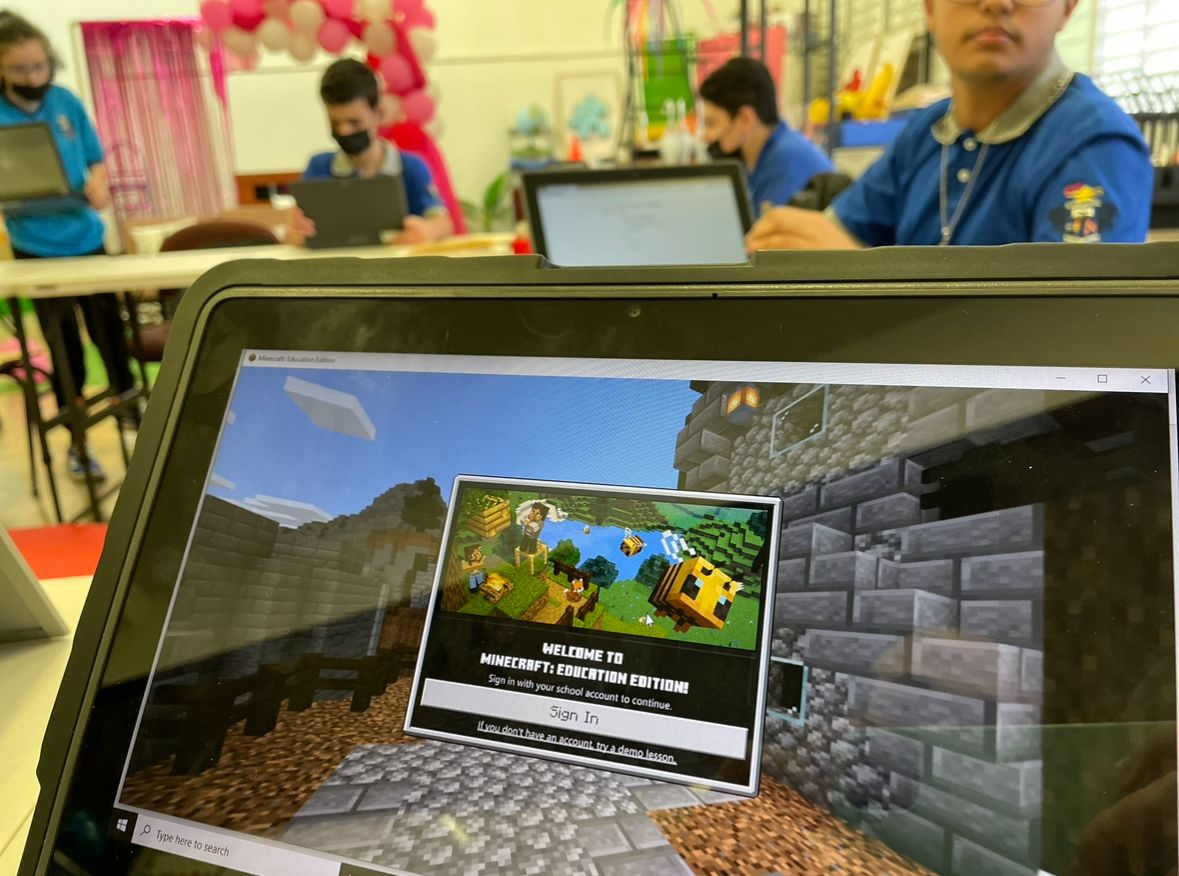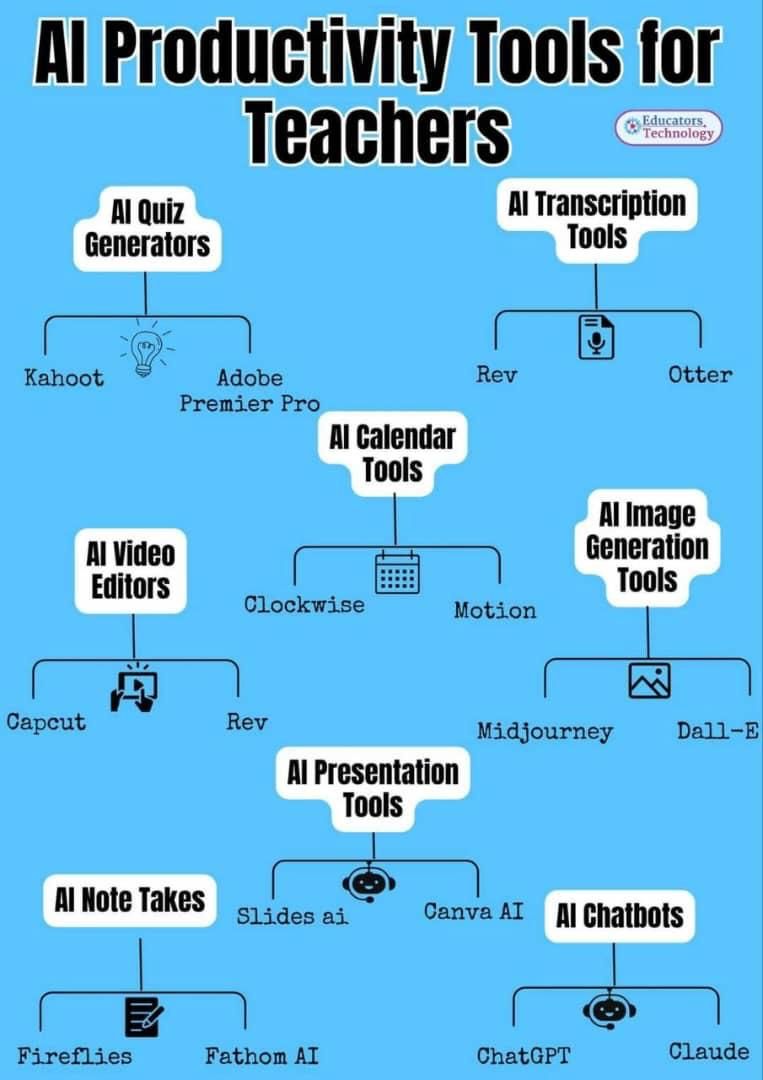Hi Ana,
Thanks for sharing the Brush Ninja and Magic School Platform, both seems amazing. Will surely try then with my students. Especially children of lower grades will appreciate the Brush Ninja, as they love painting. I will use it to teach emotions to them. The use of AI facilitates the teaching and learning process and engage learners. Magic School is a useful tool for educators which will have a direct impact on learning. I will surely integrate it in my lesson and revert back.
-
Interactive online resources for your lessons
-
@Bilim
Besides the online tools mentioned above I suggest some other tools which are also very useful and helpful in teaching learning process. These tools are : twee.com Eduaide.ai diffit.me teachy.app -
@Housna said in Interactive online resources for your lessons:
I will surely integrate it in my lesson and revert back.
I am glad to hear that you are planning to try out this with your students!
I would appreciate it if you could share your impressions and feedback with us afterwards

-
@MYOUS633cc8ba80 Thank you for sharing, they seem to be really useful for lesson planning and generating teaching materials.
I really liked the concept of diffit.me as it is avaliable in various languages!
-
@Ana_moderator Thank you for sharing this valuable information about AI and related tools. Staying informed about these rapidly evolving technologies is crucial in today's landscape. The insights you've provided are not only interesting but also highly practical, helping us understand how these tools can be applied effectively. Your breakdown of the capabilities and potential use cases is particularly helpful. This kind of knowledge sharing enables all of us to make more informed decisions about incorporating AI into our work and daily lives. I appreciate you taking the time to keep us updated on these important developments.
-
@MYOUS633cc8ba80
Thank you so much for sharing the diffit resources. Really I like it even though i did not teach language in school. Sure I will spread it with my colleagues in school. -
Digital platforms are necessary during a pandemic:
-
Remote Communication: Digital platforms like video conferencing tools (e.g., Zoom, Google Meet), social media, and messaging apps (e.g., WhatsApp, Facebook Messenger) enable people to stay connected with family, friends, and colleagues while maintaining social distancing.
-
Access to Information: Digital platforms provide a wealth of information on pandemic updates, health guidelines, and safety protocols. Official websites, online news outlets, and social media channels help disseminate critical information.
-
Remote Work: Digital platforms like Slack, Microsoft Teams, and Trello enable employees to work from home, reducing the risk of in-person transmission.
-
Online Education: Digital platforms like learning management systems (e.g., Canvas, Blackboard), online course providers (e.g., Coursera, Udemy), and educational apps (e.g., Duolingo, Khan Academy) facilitate remote learning.
-
E-commerce and Delivery: Digital platforms like online marketplaces (e.g., Amazon, Walmart), food delivery services (e.g., Grubhub, Uber Eats), and grocery delivery services (e.g., Instacart, Shipt) enable people to access essential goods and services while minimizing physical contact.
-
Telemedicine: Digital platforms like telehealth services (e.g., Teladoc, Doctor on Demand) and online consultation platforms enable remote healthcare services, reducing the burden on physical healthcare facilities.
-
Mental Health Support: Digital platforms like online therapy services (e.g., BetterHelp, Talkspace) and mental health apps (e.g., Calm, Headspace) provide access to mental health resources and support.
-
Government Services: Digital platforms like online portals and mobile apps enable citizens to access government services, such as renewing licenses or filing taxes, remotely.
Digital platforms have become essential during a pandemic.
Unlocking potential, fostering empathy, and inspiring a love of learning that lasts a lifetime!"
-
-
Hi colleagues,
Hope everything is going well.One of the resources I love to use with my students is Minecraft Education Edition. This platform promotes creativity and collaboration in my students with autism. Minecraft Education Edition is an open-world game that encourages creativity, collaboration, and problem-solving. My students can explore an infinite digital universe made of block formations, gather materials, build structures, and interact with animals.
As a SPED teacher, Minecraft: Education Edition offers lessons for students aged 3 to 14, covering various subjects: Math, Languages, Technology and my favorite Special Education.
Here are some of my students-

-
Recently I attended a course about AI in education. I share a few info may benefit us.

.jpeg)
.jpeg)
-
Our colleague Antonia Nikou (@Antonia) brings a cool and interesting lesson as part of the competition.
She integrates ICT into STEAM subjects as an essential resource for engaging her students, as it brings a modern, interactive approach to learning that resonates with today's digital-savvy learners. In astronomy education, as educators we can significantly enhance the learning experience by incorporating DIY planetariums within the STEAM framework. These planetariums, created using accessible technology and tools, offer students a hands-on, immersive way to explore celestial phenomena, which I love it, and I will try with my students.
By merging scientific inquiry with technology, engineering, art, and mathematics, DIY planetariums not only deepen students' understanding of astronomical concepts but also foster creativity and critical thinking, making the study of space more dynamic and engaging.
If you want to vote for her project, its name is “Integrating ICT and DIY Planetariums in STEAM Classrooms”Best,
Mr. Bryan